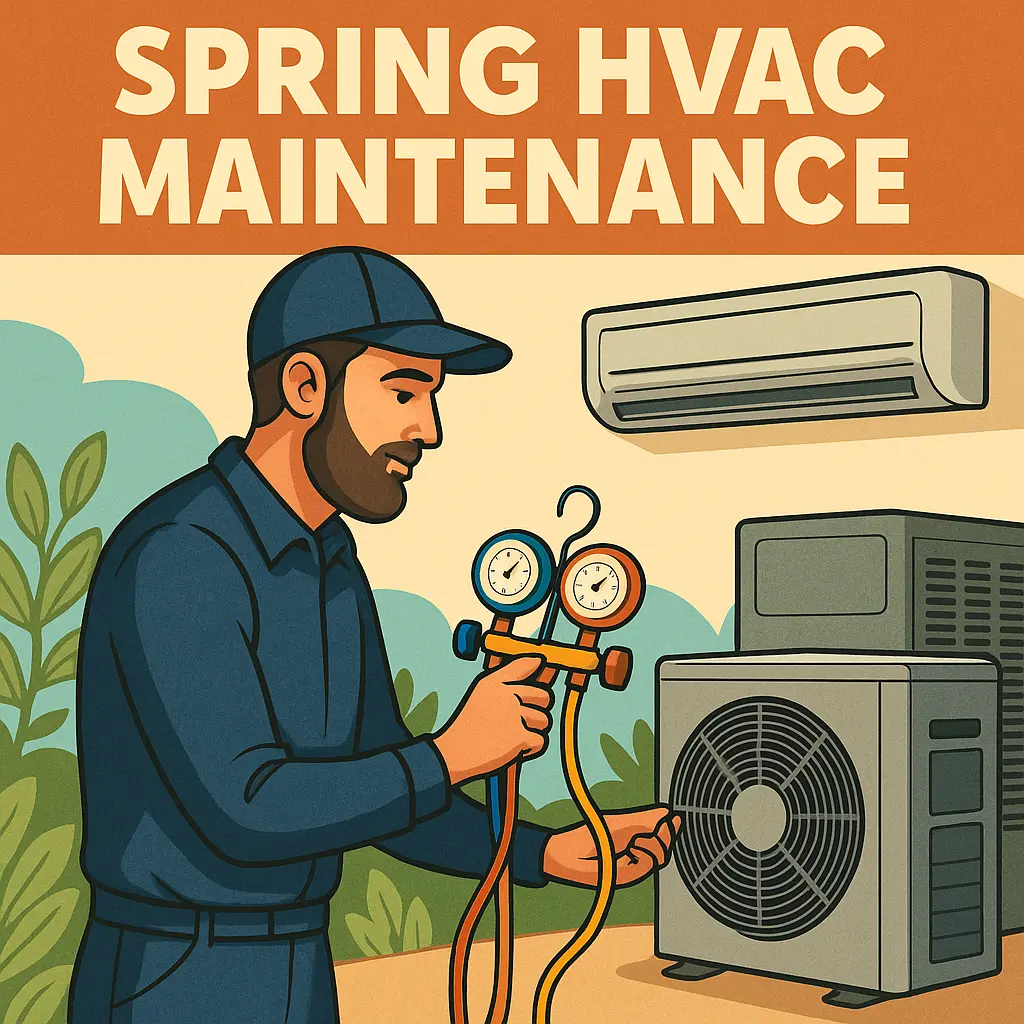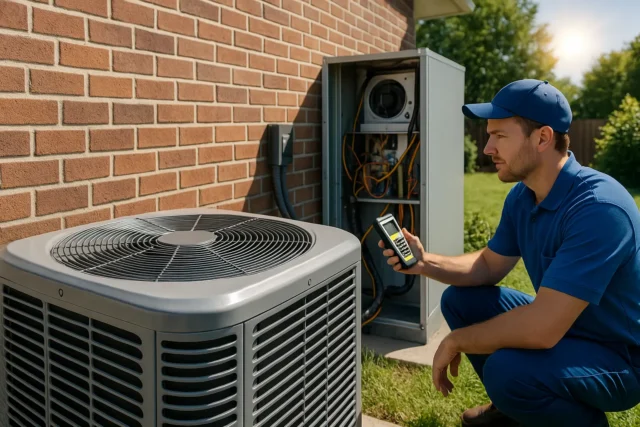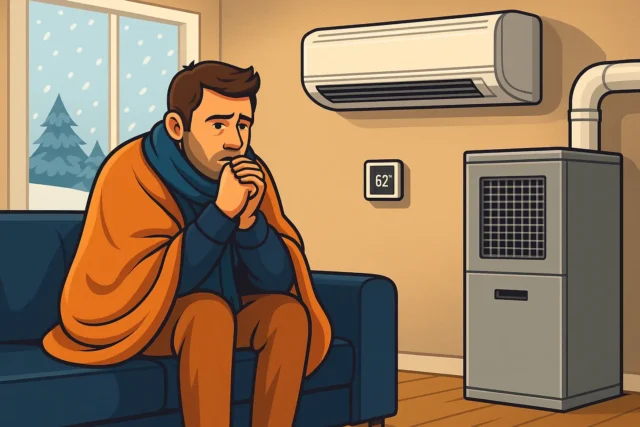Fresh Start for Comfort: Essential Spring HVAC Maintenance

As winter fades, most homeowners think about spring cleaning, yard work, or planning summer vacations. What often gets overlooked is preparing the HVAC system for the upcoming hot months. Ignoring it is like starting a road trip without checking your car’s oil—you might get lucky, but the risks are high.
Scheduling spring HVAC maintenance ensures your cooling system starts strong. Dust and debris that collected during winter get cleared away, filters are replaced, and air handlers are tuned. This not only lowers energy bills but also makes your home healthier by keeping allergens under control.
The Central Role of the Air Handler
An HVAC system has many parts, but the air handler is the workhorse. Think of it as the lungs of your home—it pushes conditioned air through ducts and keeps the temperature consistent.
During spring maintenance, technicians focus heavily on the air handler. Here’s why:
A dirty evaporator coil inside the air handler makes the system work harder.
A worn blower motor can reduce airflow, leaving some rooms hot while others stay cool.
A clogged condensate drain can lead to leaks and water damage.
When the air handler is well-maintained, the entire HVAC system performs better. That’s why technicians often say: “Take care of the air handler, and it will take care of you.”
Detailed Steps of a Spring Tune-Up
Many homeowners are surprised at how thorough professional HVAC maintenance is. A typical spring service visit includes:
1. Air Filter Replacement
The first and most important step. A clean filter keeps dust, pollen, and pet hair from circulating. It also prevents the blower motor from overworking.
2. Coil Cleaning
Both evaporator and condenser coils attract dirt. Even a thin layer can reduce efficiency by up to 15%. Cleaning coils helps your system cool faster and use less energy.
3. Refrigerant Check
Low refrigerant levels cause poor cooling and ice buildup. A technician measures the pressure and recharges if necessary.
4. Ductwork Inspection
Leaks in ductwork waste cool air, forcing the system to work harder. Sealing ducts improves efficiency and indoor comfort.
5. Thermostat Testing
Calibrating the thermostat ensures your system turns on and off at the right times.
6. Blower and Motor Inspection
Technicians check belts, lubricate moving parts, and ensure smooth operation of the air handler.
7. Electrical and Safety Checks
Loose wires or failing capacitors can cause sudden breakdowns. Regular inspections keep your family safe.
Common Problems Found During Spring Maintenance
Many homeowners skip seasonal maintenance, thinking it’s unnecessary. But technicians often find small issues that could become expensive repairs:
Cracked belts inside the air handler
Dirty or moldy coils
Low refrigerant from minor leaks
Weak capacitors that can fail during summer heat
Duct leaks wasting up to 30% of airflow
Catching these problems early prevents breakdowns on the hottest day of the year.
Benefits Beyond Comfort
Investing in spring HVAC maintenance goes beyond staying cool. It provides:
Lower Bills – A tuned system doesn’t waste energy.
Cleaner Air – Filters and coils trap dust and allergens.
Peace of Mind – You won’t worry about surprise failures.
System Longevity – Maintenance adds years to your equipment’s life.
Stronger Air Handler Efficiency – A clean air handler distributes air more effectively.
The Air Handler Advantage
Some homeowners underestimate the air handler’s importance. Here’s why it deserves attention every spring:
It ensures even cooling across all rooms.
It reduces humidity, making indoor air more comfortable.
It improves indoor air quality by filtering contaminants.
It protects your HVAC system from overwork.
Skipping maintenance for the air handler is like running a marathon without water—it may keep going for a while, but eventually it fails.
DIY Tasks vs. Professional Service
You can do some tasks yourself:
Replace filters every 1–3 months
Clear debris around outdoor units
Keep vents unblocked
Adjust thermostat settings
But professional technicians are trained to spot hidden problems. They have tools to measure refrigerant levels, test airflow, and check electrical safety. A blend of DIY care and professional service gives the best results.
Real-Life Example
One customer ignored maintenance for two years. By the time summer arrived, the air handler blower motor had failed due to dust buildup. The repair cost over $600, far more than the price of regular maintenance.
Another customer scheduled yearly maintenance. Their system, already 12 years old, still runs efficiently today with no major breakdowns. This shows how small seasonal investments can save thousands long term.
How Spring HVAC Maintenance Protects Your Investment
A new HVAC system can cost $5,000–$10,000. Regular maintenance is a fraction of that. Keeping your air handler, ducts, and coils in top shape protects your investment. It’s like changing oil in a car—you wouldn’t ignore that, so don’t ignore your cooling system.
Preparing Your Home Between Visits
Even after professional service, you can support your HVAC system by:
Using blackout curtains to reduce heat load
Running ceiling fans to ease cooling demand
Sealing windows and doors against drafts
Keeping vents open and unblocked
These habits make your air handler’s job easier and lower energy use.
When to Call for Extra Help
Sometimes, even after maintenance, issues appear. Call a technician if you notice:
Unusual noises from the air handler
Ice forming on coils
Warm air blowing instead of cool
Energy bills rising unexpectedly
When in doubt, it’s better to call a professional than risk bigger damage. For fast help, check our AC repair service.
Spring HVAC Maintenance and Air Handler Efficiency
Air handlers can make or break your comfort. Clean coils, strong airflow, and proper humidity control all come from a well-maintained air handler. That’s why professional attention each spring is essential.
Final Thoughts
Spring HVAC maintenance isn’t just a routine—it’s a strategy to save money, protect your health, and extend system life. By focusing on your air handler and scheduling timely service, you set yourself up for a comfortable summer with no surprises.


